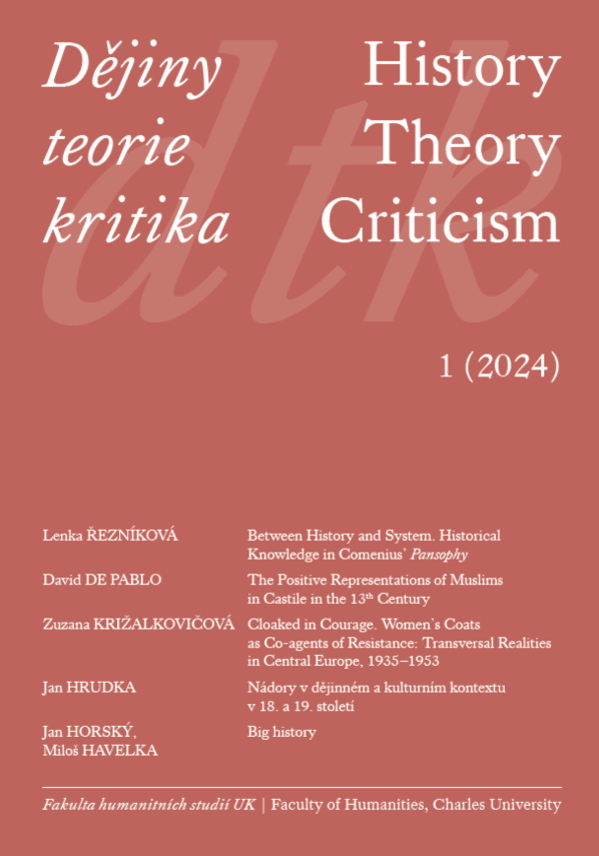Big History
DOI:
https://doi.org/10.14712/24645370.4580Keywords:
big history, histoire totale, constructivist perspective, historiographic nominalism, major eventsAbstract
In this text we criticize the concept of big history from a constructivist perspective and from the perspective of historical nominalism. We show that if big history tends to be a kind of scientification of Hegel's philosophy of history, it would not be epistemologically productive. But if big history is developed on the ground of a constructivist methodology of history, it can be a useful corrective to the excessive tendency to smallview of some strands of contemporary history. We base our argument on an analysis of the origins of the problem of the complexity of the totality of history in the debates between the philosophy of history and the nascent historical science in the nineteenth century, as well as, for example, on a delineation of the relationship between big history, histoire totale, and grand processual history. Big history concepts appear to us as always culturally coloured, while the extent of their possible value neutrality remains an open question.


